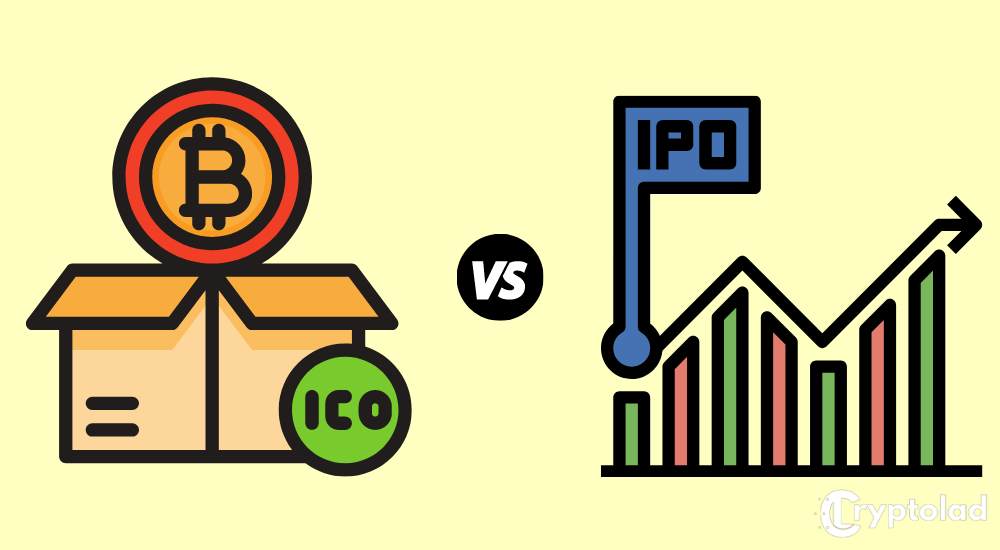What is an ICO?

ICO's have been used since 2013 in the cryptocurrency world as a means for raising funds.
In this article, you'll learn all about ICO's and what they're used for.
Let's get started...
What is an ICO, and How Does it Work?
ICO is an abbreviation for Initial Coin Offering. It's a form of digital investment in businesses.
A team can raise funds in a blockchain environment through cryptocurrencies.
As a part of the transaction, the team receives the capital needed. It offers the investors some return cryptocurrencies that will have high value in the future if the business takes off successfully.
Note that the fund-raising act happens entirely digitally before the company has even started its activities.

We'll break this down for you from both perspectives – as an investor and business owner.
Suppose you have a fantastic startup idea that you can streamline through encrypted coins.
You need the money to fund your startup, but banks or venture capital firms are not helping. You don't even want to share equity with investors either.
So, what do you do?
Here's where an ICO can be used. All you need is detailed white paperwork, a well-designed website, and an explanation of your ideas to the investors.
You can ask people to invest bitcoin in your company, and in return, you'll provide them with some cryptocurrencies that'll grow high in value as the business booms.
It's an easy and secure transaction method for both the investors and the entrepreneurs.
However, as the concept is relatively new and has minimal regulations, there's a chance of getting into scams.
That's why it's crucial to always verify the identities before investing in your valuable assets.
ICO Vs. IPO: Key Differences
These days you'll often hear a lot about ICO and IPO at the same time.

Though they rhyme together, do you know these two are exactly the opposite in nature?
ICO Vs. IPO: Definition
ICO or Initial Coin Offering enables the investor to achieve a token issued by which he/she can claim ownership but doesn't hold equity of the company. The investor has no right to vote either.
On the other hand, an IPO or Initial Public Offering serves the investor's voting right and offers a fair percentage of share in equity.
ICO Vs. IPO: Investor Profit
The prime aspect of the coin in ICO is not to share any ownership of the company.
However, investors can hope to get future benefits if the coin's value rises along with company revenue.

As an investor, you can buy or sell those coins too. But, all of the profitability and trade options depend on the structure of the coins.
Again, we mentioned earlier that an IPO allows the investors to claim a part of the company.
As a result, investors can get dividends annually according to the percentage they hold.
You can also make money by selling stocks as soon as their value appreciates.
ICO Vs. IPO: Legal Documents
If you're planning to open up a company by issuing an ICO token, you won't need to worry about legal documents.
Although you can publish a white paper document that contains details about your project.
It will increase credibility and build trust among the investors. However, you won't be necessarily obligated to do so.

On the other hand, IPO issuers must have a legal document which is called a prospectus. You have to provide all the necessary details of your company and maintain transparency.
ICO Vs. IPO: Project Setup
ICO's beauty is that you will take a much shorter time to build up a project as there are no obligations to create a legal document.
Taking a maximum of one month to set up, you can start with the Crowdsale as soon as you've prepared the white paper and a smart contract.
For the IPO, the scenario is entirely different. It takes much longer (usually up to six-months) to set the company because the document needs to be legalized.
Without a verification certificate, a company cannot issue an IPO.
ICO Vs. IPO: Investor Regulations
Everyone from around the world with internet access can invest in an ICO token. They don't require any strict regulations to participate.
In contrast, IPO investors need to meet some specific criteria.

An IPO investor needs to maintain rules and regulations, especially the KYC (Know Your Customer) and AML (Anti Money Laundering) laws.
Regulators and brokers set the rules and regulations.
Now that you understand the difference between ICO and IPO, I'm sure that clears a lot up.
Although this does put a question mark on venture capital, the most traditional form of raising funds.
Let's explore the differences between an ICO and Venture Capital.
ICO Vs. Venture Capital: Vision
Venture Capitalists provide necessary funds to fantastic business idea holders who struggle hard to start a business with a lack of money.
In return, the venture capital firms establish a claim on an agreed percentage of equity.

Both ICO and Venture Capital have advantages and disadvantages.
It's upon the entrepreneur's discretion which one to choose for raising capital.
Before choosing ICO or Venture Capital, you must first determine your goals.
If you are only focusing on raising capital and are confident enough to start off building your empire alone, we suggest going for ICO.
You’ll find plenty of investors out there ready to invest in the right business model.
You’ll be able to initiate your business faster because your only focus will be on the capital.
However, if you wish to grab some advice from your business experts, go for venture capital.
Venture capitalists will provide you with funds and share valuable knowledge that can improve your business strategies.
You’ll get the necessary business guidelines, scalability tips, ability to network with influential business people, etc.
So, before deciding between ICO Vs. Venture Capital, you need to be clear about your vision and goals.
ICO Vs. Venture Capital: Requirements
To hold an ICO, you need to maintain minimum requirements.
Usually, the documentation is done through White Paper, where you have to provide details about your company.
However, it is not a mandatory option. You can easily avoid this phase.

For Venture Capital, you'll have to provide well-prepared documentation with a full-proven strategy that'll convince them to take an interest in your business.
You need to show your work methods, staff, products, and all the little details relevant to funding.
Therefore, in this case, you will have to follow a series of procedures and fulfill all the requirements that Venture Capitalists have.
ICO Vs. Venture Capital: Investors
Speaking of investors, ICO provides the ease to reach out to individuals with vast experience or no experience at all.
You will need less energy and paperwork in proving your business. Almost everyone with stable internet and a good head on cryptocurrency can invest in ICO tokens.

The process becomes more manageable as there are very few legal bindings.
On the other hand, Venture Capitals require proving your business ideas professional and experienced investors.
As we've mentioned earlier, you need to prepare an entire detailed document that will drive the investor's attention towards you.
However, once you're able to convince the investors, the bright side of venture capital is you may find them consistently beside you for the long term.
ICO Vs. Venture Capital: Initial Investment
Though you're here to search for investors, you might need to have a decently sized personal fund in ICO before you go to the investors.
It's all for building your company website, marketing, running ads, having campaigns throughout the internet to inform people about your presence.
By the way, if you are in debt and cannot provide the bare minimum that an ICO requires to reach investors, Venture Capital is the one you can go for.
They'll provide you with all the capital needed in exchange for a promissory return.
ICO Vs. Venture Capital: Accessibility
You might wonder if ICO has any geographic limitations in the case of investors.
The good news is you can reach out to any investor throughout the world, be it in first-world countries or third-world ones.
Anyone who can access the internet and understand blockchain and cryptocurrency can easily apply to be an investor in your company.
However, the case is quite different for venture capitalists.

Usually, they require funding for the same nationality-based companies.
There are tons of legal procedures and paperwork to follow in this case.
You may even need to attend a few meetings with the venture capitalists to educate them about your business.
ICO Vs. Venture Capital: Public Perception
If you plan to raise capital through ICO, you have to build enough trust in your investors.
If you fail to do so, you might get blacklisted forever.
It will disrupt your business and impact the audiences negatively as well.
As said earlier, venture capitalists only finalize a project when it's convincing enough.
So, if you've already built trust with your investors, that will also increase your project's credibility to the press and public.
Final Verdict
Since the inception of Ethereum's Initial Coin Offering (ICO) in 2014, many companies have raised the necessary funds for their capital.
The little regulatory control has made these companies scale up smoother and faster.
However, investors must be aware of the transparency of these companies.
The investments can hold high risks and are prone to achieve less in value due to project failure.
PS: We Love Your Comments!
Let us know your thoughts below...